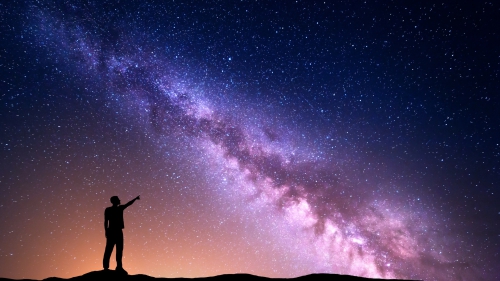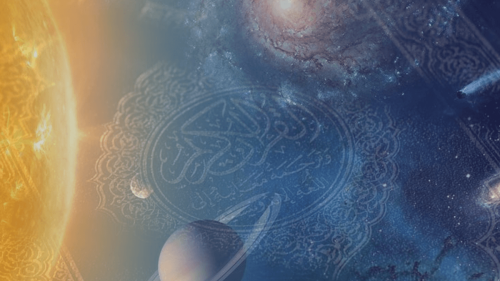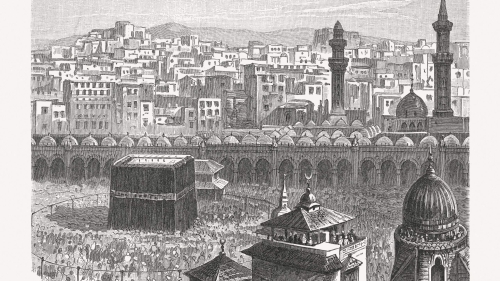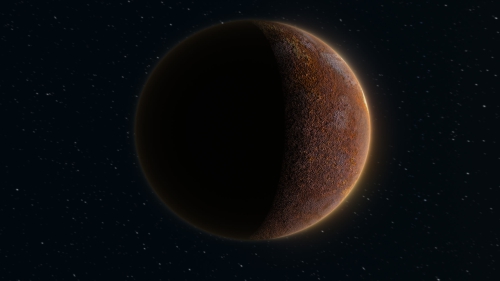Quran, Science and Certitude

About science’s presence in Quran, there have been countless analyses and associated claims. Finding prescient elements in the Quran should not be viewed as something eerie. After all, if the Quran is to be believed as the unadulterated, fully preserved product of The Lord of the Worlds (Rabbul ‘Alameen) meant to elucidate and guide mankind for all posterity, then it would not be unnatural to find allusion to scientific elements scattered about in its pages. As mankind matured in knowledge and understanding, some passages that heretofore appeared odd could very well become alive and carry sense.
But in case we fall into error, let us remember two things: the Quran is a guide for the God-fearing believers (2:2-4) and that life is simply a test no matter whether life is blissful or challenging (89:15-17). Neither the mystery of such tests nor those underlying the axiomatic Aqeedah (Creed)[1] will ever be accessible to our senses. Their truthfulness will only be attested to, by variously cited circumstantial evidences. The occasional scientific eureka moments connecting to science can only do so much to enhance or confirm faith. They are not to be viewed as more definitive than those circumstantial. All of which brings us to the Quranic verse below.
Beginning?
كُن فَيَكُونُ
Yes, technically speaking, what does “Be! So, it is!!” (2:117) have to do with the genesis of the universe?
Does it not appear to be the precursor event to ‘Big Bang’? Well, the Quran suggests no other.
Right away or instantaneity is insinuated here. It also suggests mind over matter. Physical and Chemical realities began then and there. Biological reality to follow down the pike. Incredibly, God says: ”and Our ordaining [a thing and its coming into being] is but one [act], like the twinkling of an eye. (54:50) -
وَمَا أَمْرُنَا إِلَّا وَاحِدَةٌ كَلَمْحٍ بِالْبَصَرِ
Further, this divine command projects spiritualism as a vaster canvas that includes materialism as the second act. The latter, based on its secular proponents’ point of view, is limited to having to explain material reality with materialism alone. Because of its breadth, the former is more promising in being able to guide humanity objectively and properly.
However, current extant literature about Quran’s version of Big Bang quotes: “Do not those who disbelieve see that the Heavens and the Earth were meshed together then We ripped them apart? …” (20:30).
This appears to connect with the following verse: “Then He directed himself to the Heaven when it was SMOKE, and then said to it and to Earth: ‘Come willingly or by force’ they said ‘We do come willingly’" (41:11).
I am making the point that the above two verses indicate a stage later than the point of “nothing to something, materially.” This is quite in congruence with current astronomical view of the process of creation of the universe. So, unlike claims made to date by interested Muslim writers, I think that is not the Big Bang moment!
“Be! So, it is” is.
At that time there was no smoke and there were no Heavens and Earth!! There was just an incredible explosion. Perhaps neither fusion nor fission existed then. Some other Godly transitional or initiator reaction/concoction probably was at play. Truly, it was the metaphysical moment.
As addressed above, in this age of science and technology, excitement of literally putting words into Quran’s mouth does bring on potentially dangerous mischaracterization or misidentification. It can easily entrap Muslim down the line. As some ‘ulul albaab’ (people of knowledge and insight; 3:190, 38:29) may have reflected, protested and expressed, Quran should confirm science and not the other way around. It is, of course, comforting intellectually to find validation. In fact, did not Prophet Ibrahim (p) ask His Lord to show how things come back to life after death? Was his Lord not perturbed about the quality of Ibrahim’s faith? Then did he not reply that, while he believes, he only seeks to understand and put his heart at rest, presumably by gaining ‘aynul yaqeen’ or certainty brought on by seeing? Did His lord not meet his request (2:260)? But that was a special case. Human puzzlement will not be so easily dignified with ‘physical and sensual’ insight for only a handful are deserving of God’s special classroom and pedagogy over and above revelation. Recall Moses (p) being called up to the mountain-top to receive the 10 commandments. Muhammed (p) taken to the far reaches of the universe for an intimate visitation with the Lord of the Worlds. Yet, while God is unchanging, science keeps changing, albeit positively. If we peg our confidence in the Quran based on a shaky scientific confirmatory process, where will we take refuge when that science speeds ahead or changes direction?
Textual Clarity. From the outset, the Quran itself identified two types of verses (3:7): Muhkamat (bearing single meaning - clear, precise, unambiguous and foundational) and Mutashabihat (ambiguous or with multiple interpretations and non-foundational). Uncannily, this has protected us from over-simplifying verses of the latter type. It appears now, even verses with scientific import potentially carry Mutashabihat characteristics. Historically, the verses considered Mutashabihat were those that appeared to describe the Creator’s being/essence, or action. Before now Mutashabihat ‘scientific’ verses (MSV) were not explored with as much zeal and enthusiasm. So, they have presented little danger of causing misdirection. Now, a hurriedly done wrong attribution of MSV could, in the long run, make the Quran appear unreliable. As for Mutashabihat verses related to God (MVG), a standard practice has been to avoid making literal interpretation producing anthropomorphic images. The best linguistic expertise and supportive theological knowledge were employed for their exegesis.
Just so that we are clear, three simple examples of MVG follow. The first two are Muhkamat and the remaining, Mutashabihat: “there is nothing like unto Him” (42:11), “and there is nothing that could be compared with Him” (112:4), and “Allah is the Light of the Heavens and Earth” (24:35)
لَيْسَ كَمِثْلِهِ شَيْءٌ
وَلَمْ يَكُن لَّهُ كُفُوًا أَحَدٌ
اللَّهُ نُورُ السَّمَاوَاتِ وَالْأَرْضِ
In the first two instances, clearly, God is distinct from His own creation. There are no buts or ifs about it! In the third case, that He is such a Light is open to various perceptions.
For a century or so, at least, science began to lead Muslims’ attempt to understand more of the Quran. This modern brand of science does not have proportional representation of Muslim scholarship. Before then, the Muslims were explaining the Quran using other devices. There were the Salafs of the first 300 years following the Prophet (p), and the Khalafs after that[2]. By some measures, the latter were literalists. They dismissed wholesale many of the previous group of scholars. In fact, their take was ‘do no interpretation and say it as you read it’. This left the Creator looking much like His creation. These scholars, perhaps seeking simplicity, were not spurred on by linguistic and other nuances, to say the least. Imbibing Quranic exhortation as well as Prophetic standards, the Salafs were sensitive to misrepresenting God by giving Him an identity of their own making. So, they went to great pains being respectful about interpreting MVG. However, it appears to me that since the Quran identified them as Mutashabihat verses, they should have been read literally but, their meaning, not read into literally. Having treated such verses allegorically, their explanation should have stayed open. Allahu ‘Alam (Allah knows best) could have been the closing refrain.
For example, does God have a face or a hand? While it would appear some of the Khalafs threw caution to the wind in that regard, the Salafs of earlier times demurred saying so. Thus, “…everything will perish except His Face/His Self/His Dominion” (28:88) –
كُلُّ شَيْءٍ هَالِكٌ إِلَّا وَجْهَهُ لَهُ
The Salafs used His Dominion, whereas the Khalafs used His Face, and modern translators such as Yusuf Ali and Muhammed Asad used His Self. While the latter is not anthropomorphic, it is rather narrow. So, are they implying God will lose everything else - His authority, His realm, and that Only He will survive the End of Time? Do we not need to read between the lines, pick-up the meta-meaning beyond the quickest, easiest, plain meaning of the word: His Face – وَجْهَهُ?
In another instance pertaining to God’s role in His creativity, relating to the conception of Isa (p) by Marium (p), what did the Creator say and how was it interpreted by the two scholarly groups? ”whereupon We breathed of Our spirit into that [which was in her womb]” (66:12) -
فَنَفَخْنَا فِيهِ مِن رُّوحِنَا
Taken literally, it would mean Allah Himself blew a part of His soul into Marium (p)’s womb. One would think the Prophet (p) had provided an explanation that led to a more nuanced understanding of the Salaf: Allah ordered Jibreel (p) to undertake that task. Of course, with Adam (p), Allah Himself did blow a part of His soul into him (38:71-72). Now, in Marium (p)’s case, even if Jibreel (p) did the exact same task, the plan, permission, and bidding were all God’s. So, the differentiation would appear meaningless. No doubt Adam (p) was made in the Heavens, while ‘Esa (p) was conceived on earth. That may make God’s role in the creative process slightly nuanced. In that case, the Salafs may have a point. The background issue cannot be entirely dismissed, however: God’s proximity to Marium (p) in this matter could appear to endorse the divinity of Esa (p). On the other hand, why should that matter when we have several places in the Quran where categorically this claim is not only denied but condemned (3:59; 4:171; 5:17; 5:72-78; 5:116-118)?
Organization and Balance. Delving further into Quran’s scientific aspect, if there ever has been an acute organizer, it is the Author of the Quran. He says that much very clearly in Suratul Mulk (The Kingdom - 67:3-4) when He mentions that no human eye can ever find any error or anomaly in the heavens above. Our eyes will tire themselves out under the strain of trying to find disorder therein. In, say, yet another place, Suratur Rahman (The Merciful - 55:7-8), He speaks of scale and balance in His creation. He advises mankind not to abuse balance in all their dealings.
Yes, organization leads to balance. Balance leads to durability in natural order. Balance leads to equity, peace and stability in human matters, big and small. Leading a balanced life is a challenge. Balance allows a constant mass of traffic to flow relentlessly, smoothly on a highway with the authority sitting quietly in some remote place. Similarly, balance causes a healthy rhythmic heart to smoothly pump blood throughout the human body for decade upon decade without any let up. Hunger, thirst, or illness are signs of imbalance that people fervently seek to address. Having to rest or sleep is a sign of imbalance that needs to be corrected. Likewise, in lifestyle choice, a care-free, existential life reeks of imbalance for it violates and seeks to up-end life’s biological and social cycle. A person sometimes dies from hunger, thirst, injury, or disease because the balance is so off that the former self cannot be restored.
وَكَذَلِكَ جَعَلْنَاكُمْ أُمَّةً وَسَطًا
Further, Muslims have been dubbed “people of the middle way” (2:143), meaning a people balanced. That Muslims have lost their way may be attributed to a loss of balance brought on by manifest disorganization. In their rituals, the Muslims fortunately continue to display substantial inherited organization. Because the five daily prayers have been identified as barriers to lewdness and evil (29:45); because charity out of acceptable sources of income purifies a person (9:103); because fasting during Ramadaan produces righteousness, i.e., induces a sense of fair play (2:183); and because respecting the rites of pilgrimage (22:32) gravitates Muslims toward imbibing Ibrahimic recognition of pure monotheism, trustfulness of the Almighty as was done at various times, sometimes repeatedly, by Hagar (p), Isma’il (p) and Ibrahim (p) and washing away of sins (Bukhaari: 1449; Muslim: 1350), Muslims may yet be blessed with a comeback and as a source of light and relief for today’s inventive and rich yet languishing humanity.
Retrieving Stored Information. Pointing to His creativity, the Lord of the World reminds us to find the extraordinary hidden in the ordinary. Does the dead soil not become verdant after a brief shower brought on by the processes He has placed in the natural order (16:10; 22:63)? Does life not follow a predefined, well-trodden cycle: from human non-existence to existence, from youth to old age and death in all living matters (30:54)? Why should it not be easy for Him to bring about a rebirth of His creation? Did He not make it in the first place from a situation of non-existence even in the imagination of its parents? In making the case for a rebirth, does He not say that even our finger-tips will be restored (75:3-4)? What meaning did that claim carry for the Arab pagans and nomads? Perhaps they thought about the shape, size and color differences showing up in the restored fingers among individuals. But now, we know about fingerprints and their uniqueness. Indeed, it is a prescient statement. While such a statement has always been Muhkamat, it has grown in clarity with time. Today, claiming to restore fingertips is doubly profound for it also points to restoration of distinctive fingerprint on every fingertip.
We are told that the Almighty created death and life, in that order, so that man may be tested regarding its goodness (67:2). What do we get from it? Since God is eternal, to be unlike Him, whatever He makes must be transient (39:21). The concept of end, expiry or death does not apply to the Almighty. In His realm, an end concept is immaterial. So, before saying ‘Be!’ He had to invent death. So, life was preceded in concept by death in the hands of the Creator. Yes, life and death are mundane. We see this cycle to proceed from life, yet life’s genesis was preceded by a tour into the reality of death. Thus, if we do not catch God’s philosophy about our existence, we are rather liable to miss the big picture.
Our Lord tells us to look for signs in the Quran, in our lives, and in the natural order around us to ascertain the veracity of His existence, His uniqueness (27:93; 41:53; 45:3-5 & 13; & 16:10-17). Once this is done, the rest of the creed can easily fall into place. How can one believe that, on Judgment Day, every minutiae about us will become available to Him, the Master of Ceremonies (Al Maalik), to peruse, review and evaluate? Today, we find information stowed away in nature in a permanent manner: our fingerprints, of course; age of a tree revealed by the rings in its sawed-off trunk; murmur picked up by radio-telescopes is said to be the sound of the earliest ear-shattering moment that followed ‘Be!’ We no longer need a forensic expert to tell us that our DNA is very revelatory, right? Our retina is unique. Some have suggested, even our ears bear the tell-tale signature of their wearer. “Formed fully at birth, they do not change except that the lobe may descend a little.” For diabetic patients, A1C test reports average glucose level over the previous three month period. So, when the Creator says that He will inspire our body parts to bear witness for or against us on Judgment Day, why should that be a surprise (24:24; 36:65; & 41:21)?
The Colors. Al Hakeem (The Wise) made tall mountains upon which precipitation fall in abundance, owing to condensation brought about by the atmospheric coolness in high places. From rain or melted snow gather streams and rivulets to form mighty rivers roaring downhill and beyond for hundreds of miles to the sea. Paraphrasing the Quran: “that produces fruits and vegetation of various colors just as the colors of the mountains over which the water washes down. Even people and animals carry varying shades of color” (35:27-28). That is, all the nutrient or minerals that colorful vegetation, flower and fruits display come from colorful mountainous rocks and soils. For millennia, crops, flowering plants and fruit trees depended on whatever succor the earth had to provide directly. This correlation, as pointed out by the Quran (35:27-28), is so startling in its obviousness and scientific import.
Ironic. In Suratul Hadid (57:25), the Almighty says that He sent down iron in which there is military might and benefits for mankind. But the Quran was also sent down. Exactly the same verb is used for both events. Such a parallel is perplexing until one checks out the role supernovae (exploding star) has had on planets and other such bodies. Before our time, this portion of the verse was Mutashabihat. Now, it is Muhkamat. Surely, swords and shields, tips of bow and spears are gifts produced from the provision of iron. Likewise, pots and pans, hammer and nail, and bridges are great contributors to human welfare. Those are underlying Muhkamat elements of the verse. However, the real reasons have lain latent until only recently: the magnetic poles that spread a web of cover around Earth against the Sun’s deadly ultra-violet rays and the red blood cells that courses through most animals causing them to live while also energizing them. Today’s civilization brought about for over 200 years by windmills, looms, steam locomotives, motors, cars, electricity, computers and MRIs are then but just a small sample of iron’s vital presence in our lives. Thus, the Muhkamat scope of this verse has expanded just as the verse on restoration of the fingertips. It is hard to imagine an Arab pagan or a desert nomad asking Prophet Mohammed (p) 1453 lunar years ago about the role of iron on earth and in the lives of animals, in particular, human beings! So, toward whom, other than today’s humans, is this allusion directed?
The End. Finally, long ago, as an undergraduate and graduate student of Economics, I learned about equilibrium. High School Physics, Chemistry and Biology, too, were replete with varied concepts of equilibrium. I spoke earlier about how the human body, when removed from equilibria of various types, seeks to restore it with food, water, sleep, medicine, etc. As we look around, we see hurricanes, tornadoes, etc. as means to restoring atmospheric equilibrium. Jet streams and ocean currents are driven toward attaining equilibrium of temperature. Even osmosis in plants takes place for attaining equilibrium between solutions. Authentic faith speaks to equilibrium as being born of spiritualism and materialism. It also categorically signals the dual importance of personal freedom and social involvement. Without them, the physical and psychological well being of the individual will be endangered owing to a lack of equilibrium. A lack of balance in food is now blamed squarely for the widespread incidence of blood pressure, diabetes, cancer, heart disease, asthma, and even children’s autism. We are told by environmentalists, that if we are not careful quickly enough with effluents brought on by industrial production, we dare nature to violently and unexpectedly restore equilibrium by closing in upon us. So, these aspects of a human’s life on earth appear to be the mirror image of the equilibrium or balance of the supreme order governing the creation and maintenance of the universe (67:3-4). Then there is this from the Quran, at the Creator’s signal, a single blast of an angel’s trumpet will bring the heavens and the earth crashing down (39:68). With everything be-stilled what will be nigh but the moment of resurrection (following a second trumpet blast; 50:20) and gathering together of all of mankind from Adam (p) onward (following a third and final trumpet blast; 69:13) in front of Al Maalik.
A question arises: why is an external trumpet blast needed to shatter the equilibrium of the universe? Can it not self-destruct? Is there nothing organic about the universe that will shake it to its foundations and bring about its ruin? Apparently not, if we believe the self-sustaining equilibria with which it has been endowed! Our universe came about through an external intervention: ‘Be!’ It will perish, if my understanding is not shallow and my communication glib, by a similar external intervention. An exploding sun or a supernova, now and then, here and there, are too irregular and too far apart spatially and temporally to cause the demise of the universe. In fact, interestingly today, among scientific community, having measured the energy of the Higgs-Boson field, there are rumblings afoot about the stability of the universe. It does not matter how long the scientists eventually say the universe has left to live, that it will end is in agreement with Quran. How long the universe will last is not theologically interesting to a Muslim. It is also of no practical value. Once queried about this by a companion, the Prophet (p) in turn asked the questioner what he had done to prepare for it (Bukhari: 3688/Bk-62, H-38). This matter is known only to God (7:187). After all, every person’s end of time is the moment of his death!
So, yes, the Quran is replete with science and meta-science. An inquisitive, doubting, ‘modern’, ‘rational’ mind can find peace in its pronunciations. A belief in an All-Knowing, All-Powerful Creator is hardly far fetched when we realize He is the One Who dictated the wondrous Quran.
In conclusion, here is a verse crying out for exploration: "The creation of the heavens and the earth is definitely a greater thing than creation of mankind, however, most of mankind knows not" (40:57). We could, of course, as we have been wont to for some time now, wait to see what science has say to about this matter and then use it to justify the verse and find comfort in doing so.
Allahu ‘Alam!
[1] God exists and is One; Resurrection and Day of Judgment will happen; God holds authority over everything good and bad; Angels; Revealed Books; and God’s chosen messengers from among people, living among them, elected to transmit His message to them for their earthly guidance and heavenly welfare.
[2] https://alsunna.org/the-muhkamat-ayat-and-mutashabihat-ayat.html#gsc.tab=0
Regarding interpreting such Mutashabihat verses, Fakhruddin Ar-Razi (r) eschewed literalism/anthropomorphism, whereas Taqi- Ad-Deen Abul Abbas Ahmed Ibn Tayymiah (r) appears to have taken the opposite position.
Topics: Cosmology, Day Of Judgement, Islam And Science, Islamic Knowledge, Life And Death, Space And Astronomy Values: Knowledge, Spirituality
Views: 6801
Related Suggestions

















